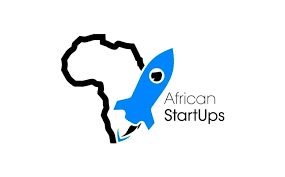TECHNOLOGY

AFRICAN STARTUPS ENCOUNTER INCREASED INVESTOR SCRUTINY DESPITE SECURING $300 MILLION IN FUNDING.
African startups face stricter investment scrutiny compared to their global counterparts, with investors demanding stronger proof of traction, conducting more rigorous financial audits, and overestimating risks in the region.
Angel investors highlight that Silicon Valley remains the most founder-friendly environment for raising capital, unlike emerging markets such as Africa.
“For African startups, the investment process often focuses more on finding reasons not to invest rather than assessing their potential,” said venture capital strategist Tayo Olowu in a statement obtained by ESSENTIAL NEWS.
Olowu, who has evaluated over 50 venture deals since 2020, noted that African founders face tougher requirements than their peers in Silicon Valley, London, or emerging markets like India and Brazil.
“A startup in the U.S. can secure millions based solely on an idea and a strong founding team, whereas an African startup often needs to demonstrate substantial revenue before gaining serious investor interest,” Olowu explained.
Despite these hurdles, African startups continue to attract funding, though at a slower pace. According to Africa: The Big Deal!, a platform tracking startup investments on the continent, nearly $300 million was raised in January 2025, with approximately 40 companies securing $289 million in funding.
However, this comes amid a broader decline in funding. In 2024, African startups raised $2.2 billion—down 25% from the $2.9 billion secured in 2023. The drop underscores increasing investor caution and the mounting challenges startups face in accessing capital.
Kenya, Nigeria, Egypt, and South Africa maintained their dominance in Africa’s startup investment landscape, securing 84% of all funding in 2024—consistent with the previous year’s trend.
“Silicon Valley remains the most dependable hub for startup fundraising, providing founder-friendly terms that are difficult to find in other global startup ecosystems,” said Andrew Chen, General Partner at Andreessen Horowitz.
Andreessen Horowitz, a California-based venture capital firm, has invested approximately $45 billion across multiple funds to support entrepreneurs shaping the future through technology.
While startup ecosystems in cities like Austin, London, Miami, Paris, and Sydney are expanding, Chen pointed out that they still lack the investor depth needed to ensure consistent fundraising success.
“In recent years, it has become trendy to say that you can launch a startup from anywhere. But launching is just the beginning—you also need to secure funding,” Chen explained.
“I believe the only truly viable place for founders to raise capital is Silicon Valley, especially if they want investor-friendly terms,” he wrote in a LinkedIn article.
For Africa, the funding gap is driven by outdated risk perceptions, stringent financial scrutiny, and a general lack of trust in the continent’s markets.
Many investors view Africa as a high-risk market due to political instability, currency fluctuations, and infrastructure challenges—issues that are not exclusive to the continent. This perception leads to heightened scrutiny, with African founders facing rigorous financial audits, extensive legal checks, and deep background investigations. “At times, it feels more like a forensic probe than a typical investment evaluation,” Olowu remarked.
He urged African venture capitalists and angel investors to set a precedent by supporting local startups without imposing excessive barriers. Demonstrating confidence in African entrepreneurs, he argued, would help attract global investors.
Startup advisor Brandon Solomons pointed to the region’s limited capital availability as a key factor behind the cautious investment climate. He noted that African venture capital firms tend to be highly risk-averse, restricting early-stage funding opportunities.
“I’ve been trying to understand the extreme risk aversion here, especially since African markets urgently need more early-stage funding, even at the pre-seed level,” Solomons said.
He linked this cautious stance to financial limitations, highlighting that the average African VC firm manages $50 million in assets—far below the $324 million average for Asian counterparts.
"This represents a significant development in our ongoing coverage of current events."— Editorial Board









